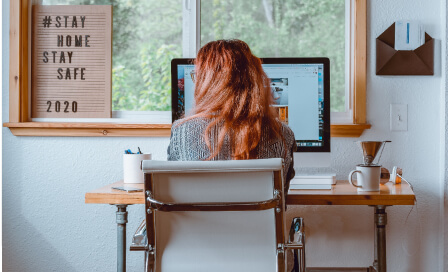In recent times, the concept of working from home has undergone a revolutionary shift. Once considered a luxury or an occasional perk, remote work has become a significant aspect of the modern workforce. While this shift has brought about numerous benefits such as increased flexibility and reduced commuting stress, it has also brought to light the profound impact it can have on mental health.
The Rise of Remote Work: Blessing or Challenge?
The transition to remote work was initially welcomed with open arms, offering a reprieve from traffic snarls and long commutes. The prospect of a more relaxed working environment seemed promising. However, as the lines between personal and professional spaces blurred, new challenges emerged, and mental health took center stage.
The Loneliness Quandary
One of the most poignant impacts of working from home is the potential for increased loneliness and isolation. Humans are inherently social creatures, and the lack of in-person interactions that an office environment provides can lead to feelings of detachment. Virtual meetings and digital communication can never truly replace the camaraderie of face-to-face interactions, impeding the development of strong interpersonal relationships that are vital for mental well-being.


Routine Disruption and Boundaries
Working from home can disrupt established routines. The lack of clear boundaries between work and personal life can lead to extended working hours, blurring the lines between relaxation and productivity. A healthy routine offers structure and stability, promoting mental well-being. When this balance is compromised, stress and burnout can ensue.
Zoom Fatigue and Technostress
The rise of video conferencing tools has introduced a phenomenon known as “Zoom fatigue.” The constant need for virtual meetings can be mentally draining, as it requires a different type of focus than in-person interactions. Moreover, constant connectivity to devices and screens can lead to technostress, adding an additional layer of strain to mental health.
Nature Deficit and Sedentary Lifestyle
The outdoors and exposure to nature have been proven to have a positive impact on mental health. Working from home can inadvertently lead to a “nature deficit” as employees spend prolonged hours indoors. Coupled with a more sedentary lifestyle, this can contribute to feelings of stagnation, restlessness, and even depression.

